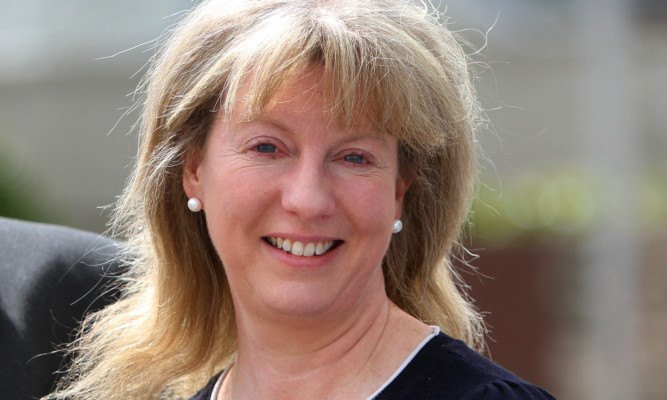Scotland’s health secretary is to be called before MSPs to give evidence and explain what ministers are doing to make Frank’s Law a reality.
Shona Robison will be asked to appear before Holyrood’s public petition’s committee, which is considering the campaign to bring a fairer care system to under-65s suffering debilitating diseases.
Amanda Kopel, the wife of Dundee United legend Frank who died after a six-year battle with dementia, wants personal care to be free for younger people after the family had to pay for support at home until the final few weeks of his life.
The Courier is backing the campaign for Frank’s Law, while Angus, Dundee, Fife, and Perth and Kinross councils have all unanimously signed up to show their support.
Members of the Scottish Parliament committee have now agreed to ask Dundee East MSP Ms Robison to give evidence at a future meeting, expected to take place this month.
It came as Public Health Minister Jamie Hepburn said the Scottish Government is “very sympathetic” to Mrs Kopel’s views and said work was ongoing with council umbrella group Cosla to bring about change.
In a letter, he said: “We are working with Cosla and others on creating a fairer and more consistent charging system for everyone in Scotland.
“Decisions on charging form part of the ongoing dialogue and work mentioned above with Cosla and others on ensuring that we have the quantity and quality of social care the people of Scotland require and deserve.
“We are considering the options around all aspects of charging for social care, but any changes to the system have to be fair, whilst also being affordable and sustainable, and we need to ensure we have robust data to ensure that sustainability.”
Mrs Kopel, of Kirriemuir, said she realises large-scale change “takes time” but pointed out she has been campaigning for years, having first given evidence to the committee in September 2013.
She said: “There are approximately 3,500 people in Scotland under the age of 65 with dementia. Has any government minister or department actually advised of the cost of free personal care for these people, when they are assessed as needing?
“I say ‘when they are assessed as needing it’ as opposed to ‘at point of diagnosis’ as I am led to believe that there seems to be some confusion in certain circles as to these two points.
“I would like to clarify that I have always stated that it is ‘when they are assessed as needing it’.
“Speaking from personal experience, my husband was diagnosed with dementia when he was 59 and did not need personal care then, but as he deteriorated, then he needed personal care.”
Mrs Kopel has written to the committee to express her concern at the “lack of action” by the Scottish Government on the issue.
